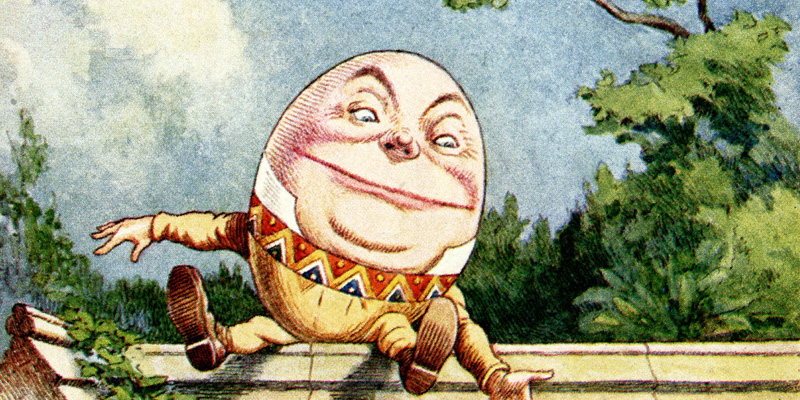While the American Civil War brewed, boiled over, and was resolved, another rebellion was taking place halfway across the world that was far more deadly. As China opened its borders to the rest of the world, the Chinese government lost the faith of its people.
Political, social, and economic turbulence arose and sent the country spiraling. But nothing would cause more irreparable damage to China and the Qing rule than the Taiping Rebellion.
The violence that followed would be some of the worst in human history, resulting in millions of casualties.
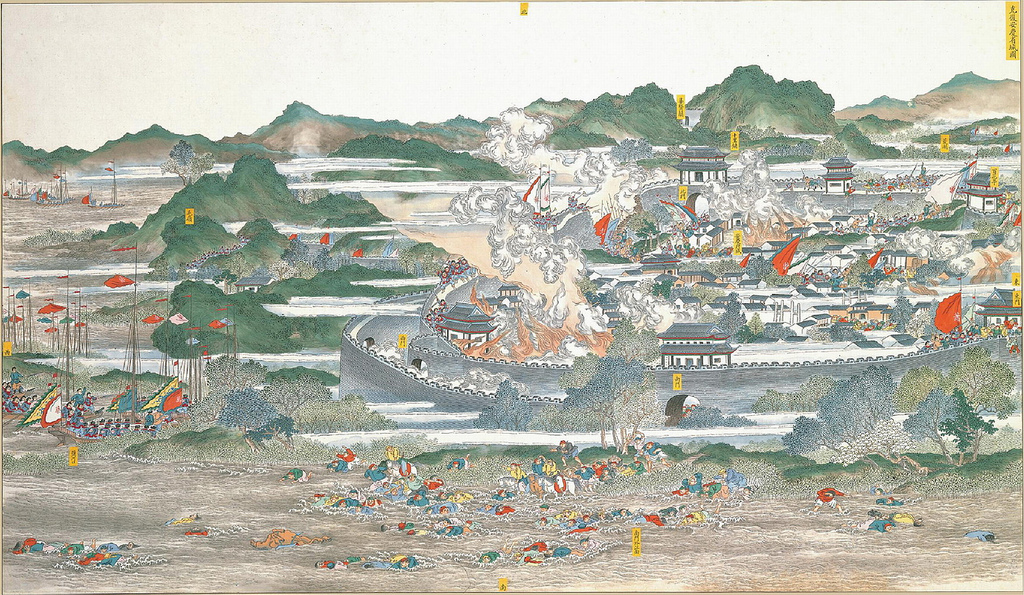
China Enters the World Stage
The Qing dynasty ruled over China for over 200 years, from 1636 to the dissolution of Imperial China in 1912. The Qing reached the zenith of their power in the late 18th century when they expanded their borders into inland Asia and spread the influence of Confucianism.
But with this growth came increased issues. The nation’s expansion led to a massive increase in population.
The number of people in China doubled over the first half of the 19th century, which led to new social and economic issues. The country was faced with famine and economic struggles due to poor taxation policies, which left China in a weakened state.
As a result, the country attracted the interest of external imperial power. European nations were expanding across the globe rapidly and looking to make a profit.
In the first half of the 19th century, China was forced to fight two separate wars, first against Britain. Then against Britain and France, regarding the Chinese government’s control over the importation and distribution of goods.
When the European powers began smuggling opium into the country, the widespread use of drugs had a detrimental effect on society and China went to war with the Europeans. The imperial powers handily defeated the Chinese military and forced the Chinese government to sign treaties that offered favorable rates to external traders.
China’s Struggles in the 19th Century
The Chinese government gave up so much power and suffered so many natural and economic struggles during the 19th century that it was deemed the “century of humiliation.”
European nations were granted access to specific Chinese ports, namely Shanghai. China even ceded possession of Hong Kong to Britain, who maintained control over the island until the 1990s.
The rapid influx of opium became an epidemic, hindering Chinese citizens. European nations thrived with their new trade opportunities, but political and social instability after the Opium Wars would demonstrate the public’s wavering faith in the Chinese government.
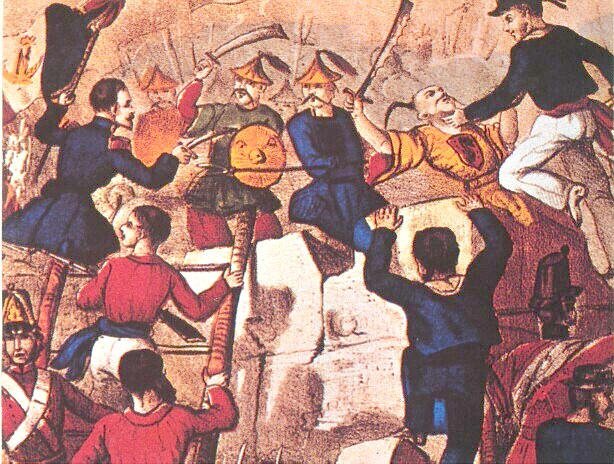
Alongside the nation’s economic hardships, China’s social and political fabric was changing in the 19th century. The ruling Qing dynasty, largely led by the ethnic Manshu group, clashed with the Han clan who had previously held power in China.
The Han, including the Hakka ethnic group, believed that the Qing were barbaric leaders who were ruining China. They were hopeful for a change.
Meanwhile, the spread of Christianity and Confucianism in China simultaneously led to religious conflict. The Han followed a sect of Christianity, while the Qing expansion in the previous century spread Confucianism across China.
These conflicts combined set China left Chinese society in a tense state, compounding these issues with emerging international insecurity. These tensions would combine under a singular leader, the failed scholar Hong Huoxiu.
He was a member of the ethnic Hakka group who founded his own religion and attempted to overthrow the Qing government, sending the country into disarray.
The Founding of Taiping Christianity
In the 1850s, Hong Huoxiu failed his imperial examination three times. This caused him to question his life and break down.
In his broken mental state, Hong dreamt that he went to Heaven and found his family. Only, this was not his family from Earth.
Instead, Hong found a divine family, believing he was the brother of Jesus and the son of God. He adopted the name Hong Xiuquan after God informed him that his given name was insulting and heretical, to be more aligned with his heavenly family.
Hong also claimed that God told him Confucius was poisoning the minds of the Chinese people. This reinforced Hong’s belief that Christianity and the Hakka would save the nation.
As a result, the roots of the Taiping Rebellion were born and one of the most tragic events in history was set in motion, all by the disillusionment of one man.
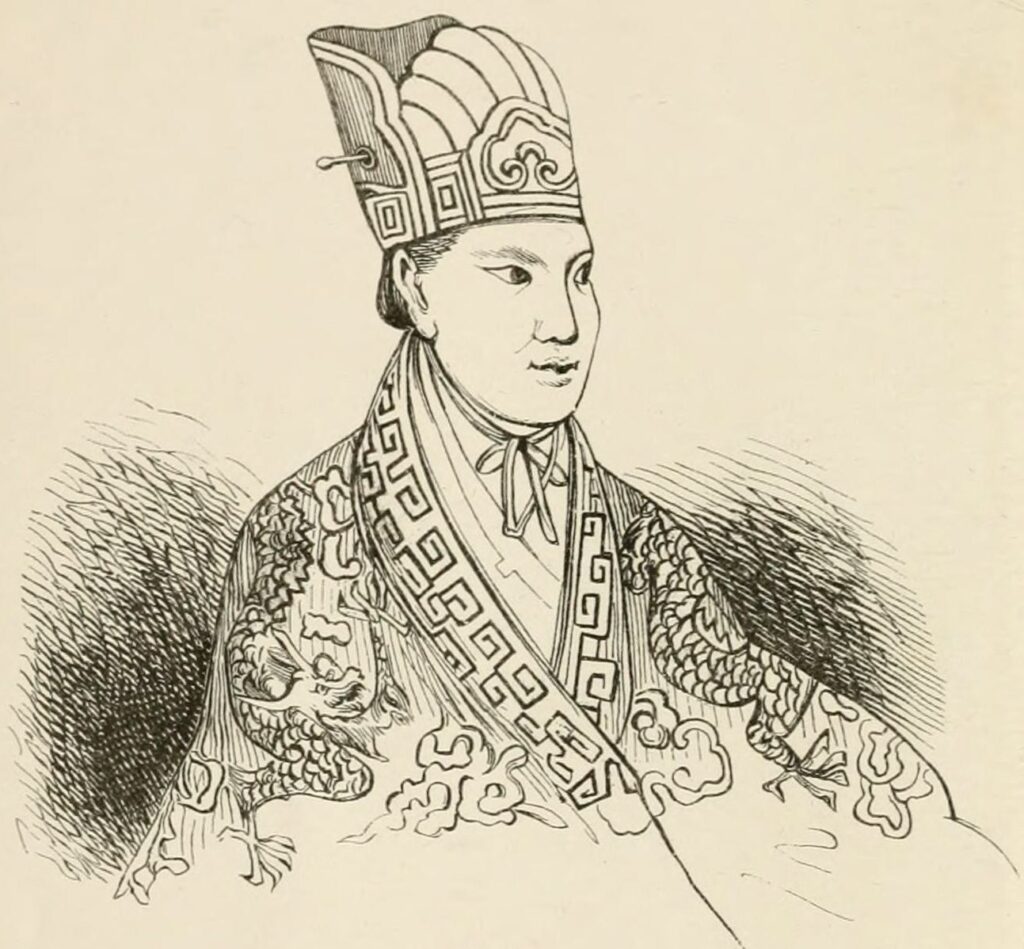
With a newfound religious fervor, Hong approached the poor farmers who had spent the last half-century suffering under Qing rule. He offered them a solution: rebellion.
Hong promised that if they followed him he would overthrow the Qing, and by extension, the Manchu. He promised that he would rule China more effectively and bring about prosperity for all.
The promise of a new regime appealed to many, and Hong soon amassed a large army.
While recruiting across China, Hong also spread the word of God. He promoted a mix of Christianity and the Chinese religion Shangdi, along with influences from other popular religions at the time.
This new religious practice was unique to China and Hong himself. It has since become known as Taiping Christianity. It spread rapidly after the creation of the God Worshipping Society, a secret society formed by Feng Yunshen during a mission trip where he promoted Taiping Christianity.
The Early Days of the Heavenly Kingdom
Thus, the religious and political rebellion began in full force in 1851. Rebel forces under Feng Yunshan and Wei Changhui attacked Qing forces in the southern province of Guangxi.
Their rag-tag army of farmers, miners, pirates, and assorted other slighted working people gathered, 10,000 strong, to fight against the Manchu-led, Confucian-centered Qing dynasty. After their victory, Hong announced himself as the Heavenly King of the Heavenly Kingdom of Peace, or Taiping Heavenly Kingdom, where the name Taiping derives from.
Over the next two years, Hong and his forces moved up the Yangtze River and conquered several key cities along the river, including Changsha, Yuezhou, and Wachung. Forces then captured the city of Anqing in 1853, pushing back Qing forces.
The largest Taiping victory came in March of 1853 when forces captured the city of Nanjing. In a horrible precursor to the violence that the city would face from the Japanese during World War II, the Taiping forces stormed the city and forcibly took it over.
The Taiping army killed all of the men in the city. Then, they forced the women outside the gates and burned them alive.
This immense violence was brought on by the combined religious and political beliefs that the Manchu were demonic and bringing about the collapse of China. Therefore, destroying them was the best course of action.
After the victory, Hong renamed the city Tianjing, which means Heavenly Capital, setting it up to be the center of his new empire.
Ruling Over the Heavenly Kingdom
Once Hong had established a capital from which to rule, he took a leisurely approach to ruling.
Rather than taking control of day-to-day policy running, he gave orders by written proclamation. He preferred the grand halls of his palace to the gritty realities of running a war.
While Hong relaxed in his chambers adorned with luxurious items and beautiful women, his high-ranking officers ran operations to expand Taiping’s influence. The armies had little success, expanding slightly but easily pushed back.
Taiping instead held their Southern influence for nearly a decade within the cities they had captured by 1853.
Trouble within the Heavenly Kingdom
Hong’s behavior began breeding enemies within his own ranks within three years. High-ranking officers questioned Hong’s inaction and detachment, as well as his divine right, and tried to establish their own.
Hong did not stand for this. Any official who questioned Hong’s divine rule and threatened his order was killed by Hong’s religious zealots.
Most famously, Hong had his close advisor Yang Xiuqing killed for questioning his authority and attempting to also claim his place as a member of the divine family.
Hong’s retreat into his life of luxury and the removal of high-ranking leaders left a power vacuum within the Taiping. The remaining officers attempted to do what they could to keep the movement afloat.
They reached out to European powers, who declined with a statement of neutrality. However, they sent advisors to the Qing army.
Since the Qing were the ones who opened trading with Europe, it made sense that the European powers would want to ensure they remained in power. When officers attempted to reach out to others within China, they were met with opposition because of the fanatic religious views of Taiping Christianity.
On all fronts, the movement lacked support.
The Collapse of the Heavenly Kingdom
After Hong’s cousin joined the movement in 1859, the armies managed to expand control a bit further. However, a year later, the Taiping’s inevitable defeat slowly began.
A local army called the Xiang Army grew rapidly to oppose the Taiping. They defeated them in a series of major battles.
Shi Dakai, a major general in the Taiping Army, surrendered his forces in 1863. He was executed by slow-slicing, a form of killing that involved slowly cutting off parts of someone’s body and was also called “death by a thousand cuts.”
The Xiang Army began besieging Nanjing in 1862, with Hong declaring that God would protect the city from the Qing. However, in just over two years they were able to overtake the city.
Hong himself died early in 1864 of food poisoning because he was forced to eat wild vegetables as a result of the siege. He never saw the city overtaken.
His body, buried by the imperial palace, was exhumed, cremated, and shot from a cannon to ensure Hong was unable to find peace in the afterlife, a punishment for leading the rebellion.
It would be until early 1866 before the last of the Taiping loyalists were defeated. But the capture of Nanjing was the true writing on the wall that the movement had ended.
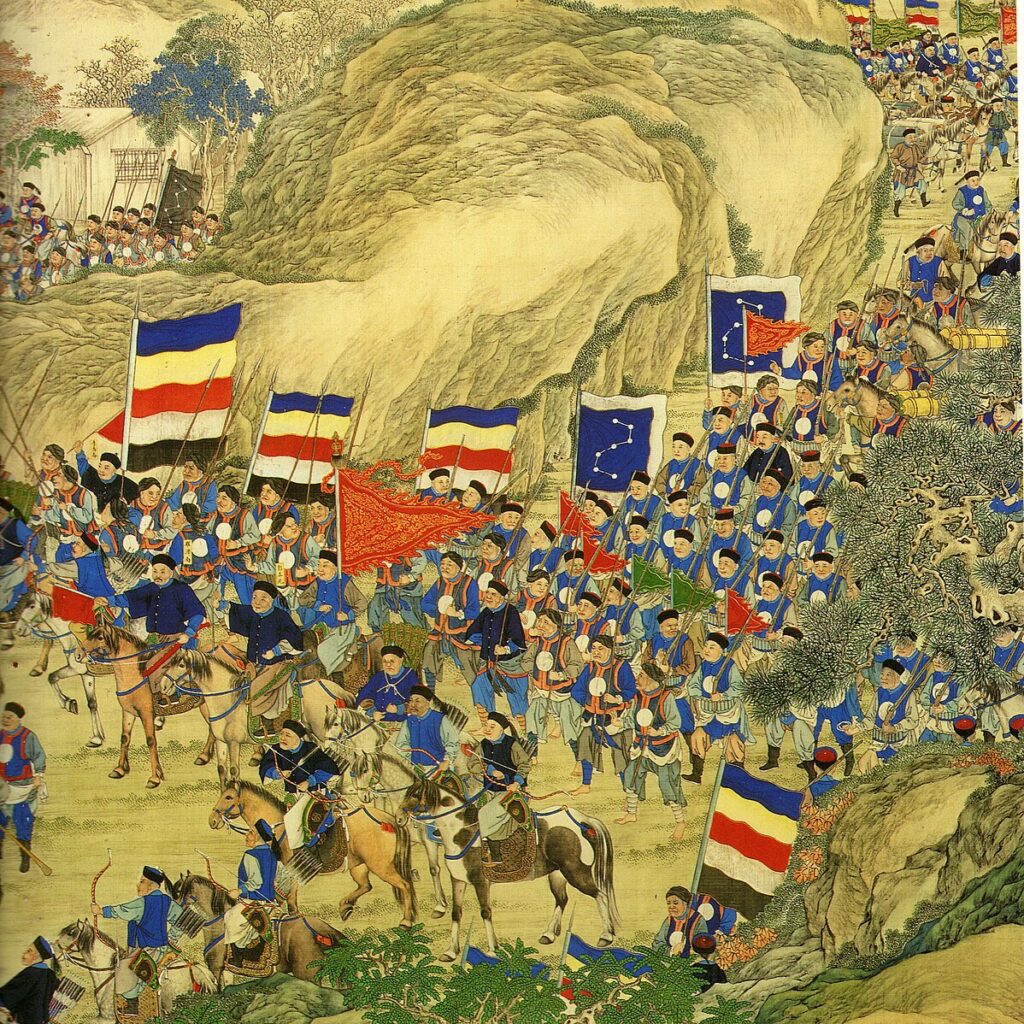
The Tragic Death Toll
With no reliable census at the time, there is no way to be certain how many people died as a result of the Taiping rebellion.
However, scholars have estimated that the conflict resulted in 20 to 30 million casualties from war, plague, and famine. This is over 20 times more casualties than the American Civil War, and 2 million more than the First World War.
It is the fourth deadliest conflict in human history behind the Qing conquest of the Ming dynasty, which had 25 million casualties; the Second Sino-Japanese War in the late 1930s and 1940s, which had nearly 30 million casualties between the military and civilians; and World War II, which had nearly 120 million casualties including the Holocaust.
Over 14 years, millions were killed, and for little to no reason. The religious and political tensions that drove the conflict were partially resolved with the dissolution of Taiping Christianity and the rebellion.
However, the underlying issues of economic insecurity and social collapse remained. It would be only another half century before China faced a widespread reform that reshaped the nation.
China’s rapidly changing social and economic landscape in the 19th century brought about immense change through violent rebellion. Hong Huoxiu, or Hong Xiuquan, led thousands of people against the Qing dynasty in an attempt to resolve China’s rising issues in the “century of humiliation.”
The rebellion was unsuccessful in usurping the Chinese government but did succeed in undermining the Qing authority and power. The nation was weakened, which left it disadvantaged during conflicts over the next half-century and the Qing dynasty ended in 1912.
So although Hong was not successful in ruling China, he did set the wheels in motion for the nation’s eventual reform with one of the most violent uprisings in human history.
References
“Portrait of a Bloody Siege.” University of Cambridge, March 9, 2014. https://www.cam.ac.uk/research/news/portrait-of-a-bloody-siege.
Reilly, Thomas H. “The Taiping Heavenly Kingdom: Rebellion and the Blasphemy of Empire.” University of Washington Press: Seattle, 2004. https://www.jstor.org/stable/j.ctvct01fv

